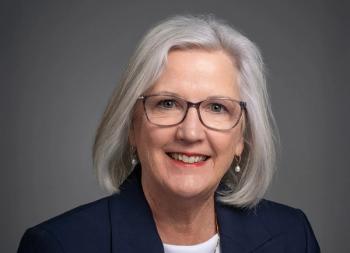
Women earn less than men, and their health suffers due to the pay gap
Typically, women earn 80 cents for every dollar earned by men. Closing the disparity in pay would improve health outcomes in women, advocates say.
Women don’t earn as much as men, even with similar education, and the gender gap has a big impact on the health of women.
Typically, women earn about 80 cents for every dollar earned by men, but the disparity is even wider among women of racial minority groups. Black women earn 63 cents for every dollar earned by men, and Hispanic women earn 55 cents for every dollar paid to men, according to U.S. Census data.
Advocates have pushed for better pay for women for years, and they are now putting more attention on how disparities in pay affect women's health.
The County Health Rankings and Roadmaps, a program established by the University of Wisconsin and the Robert Wood Johnson Foundation, examined the toll of that gap on women’s health in a forum last week. (To find the gender gap in pay for any county in the U.S., go
The COVID-19 pandemic added to the pay gap for women, said Corin Reyes, a registered nurse and the director of health equity for the YWCA San Antonio.
“The pandemic actually amplified a lot of the caregiver responsibilities that women were taking on,” Reyes said.
Many women, in addition to shouldering the bulk of household and family responsibilities, are also assuming most of the caregiving duties for older parents or other family members. The typical caregiver of an elderly family members is a 49-year-old woman who is working full-time and providing 20 hours of care, or more.
“That’s a heavy load to lift,” Reyes said.
As a result, women choose jobs that will accommodate their caregiving responsibilities. “They tend to go for the flexible jobs. Flexible jobs pay less,” Reyes said. “They’re going to take the lower paying job to get that flexibility to take care of home.”
Women with lower incomes are less likely to be able to pay for home healthcare professionals to help care for aging family members. Women are spending more time taking care of family members and often are suffering greater problems with their own health.
Women caregivers are six times more likely to experience anxiety or depression, Reyes said. Women caregivers are also more prone to chronic conditions, such as hypertension or diabetes, she added. They are also at higher risk of having a lower immune system.
“One-third of caregivers are already sick themselves,” Reyes said.
Not so surprisingly, those women doing more to care for family members are neglecting their own health needs. “They’re just not taking care of it,” Reyes said.
Two out of three caretakers don’t fill prescriptions at all, and one-third don’t go to doctors for preventive care visits, Reyes said. Exercise or other self-care solutions also fall by the wayside.
“You don’t have time, or if you’re suffering from depression, you just don’t feel like it,” Reyes said.
Misty Moon-Harty, director of racial justice and gender equity with the YWCA San Antonio, said gaps in pay aren’t typically tied to men having more advanced degrees.
“The reality is the wage gap is not about women not having the same level of education,” Moon-Harty said.
Over a lifetime, Black women lose $900,000 due to pay gap with men, and Hispanic women lose more than $1 million, Moon-Harty said.
In addition, many women retire earlier because they have to spend more time as caregivers.
“Women retire earlier typically to take care of family members and then they live longer on top of that. It puts them down in the hole a little bit farther,” Reyes said.
Health system executives have said many Americans have deferred care due to the pandemic.
Researchers have found sharp drops in cancer screenings, according to a
In healthcare, women have been affected by the pandemic differently than men.
Women doctors have also suffered
The pay gap, combined with the COVID-19 pandemic, has created “a huge crisis” in the health of women, Reyes said.
“To prevent that, we should probably close the wage gap, so we don’t go down this road again, that we already saw with the pandemic,” she said.






























